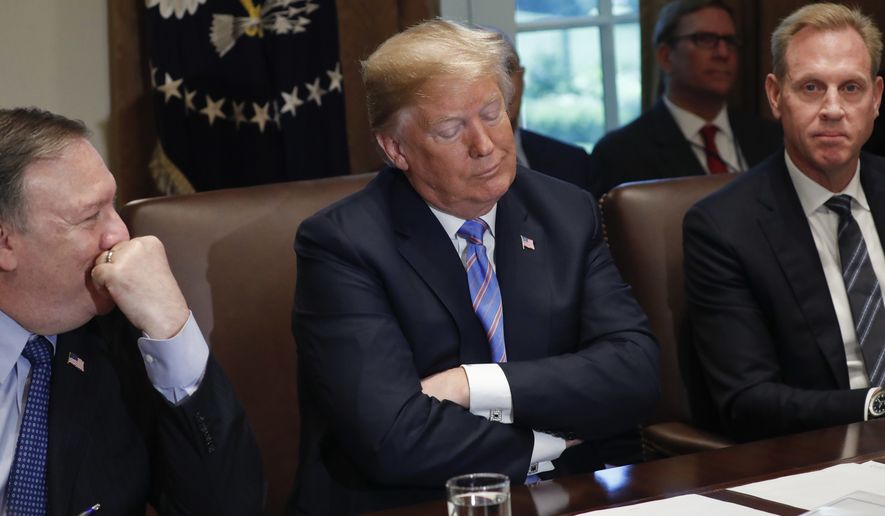Judge Jesse M. Furman heard days of testimony, looked at thousands of pages of documents, and, in the end, concluded that the Trump administration seemed to be hiding too much in its explanation for why it decided to ask about citizenship on the 2020 census.
The judge on Tuesday deleted the question from the upcoming count and said if President Trump and his team want to add it back, then they must restart the process.
Judge Furman, who was appointed to the bench by President Barack Obama, rejected immigrant rights groups’ claims that the citizenship question was motivated by racism or other nefarious motives, saying that was never proved.
But he said Commerce Secretary Wilbur Ross ignored the advice of experts and discarded key checks designed to make sure census questions wouldn’t frighten people into refusing to take part.
“Secretary Ross violated the public trust,” Judge Furman wrote in a 277-page scolding.
All sides said his ruling won’t be the last word.
Appeals are likely, and the Supreme Court is already considering a part of the case dealing with whether Judge Furman was right to order Mr. Ross to testify.
Meanwhile, another case is pending in California.
Attorney General nominee William P. Barr, testifying to the Senate, said he expects the department to continue to defend the question as lawful.
But for now, Judge Furman’s ruling stands as a major rebuke to Mr. Trump, whose campaign bragged about adding the question to the census as a major victory.
The decision is another boost for immigrant rights advocates who have repeatedly defeated Mr. Trump in lower courts.
Those advocates complained that asking about citizenship would frighten Hispanics, illegal immigrants and perhaps others who don’t want the government to know their legal status. Judge Furman concluded that more than 5 percent of people would refuse to fill out their forms next year if the question was maintained.
With billions of dollars in federal aid and legislative districts — the very essence of political power — resting on census numbers, immigration activists said frightening people was the goal.
“It has been obvious since Day One that the Trump administration rushed to add a citizenship question to intimidate and undercount immigrant communities,” said Donna Lieberman, executive director of the New York Civil Liberties Union.
Steven Choi, executive director of the New York Immigration Coalition, called the citizenship question “part of a white supremacist agenda.”
In his decision, Judge Furman said that there is nothing inherently wrong with asking about citizenship — and indeed such a question used to be standard on the full census count up through 1950 and on the census “long form” after that.
Even now, the question is still asked on the American Community Survey, the annual rolling census for a small percentage of Americans.
But the judge said in adding the question back into the full census, Mr. Ross ignored key checks built into the process to vet questions. He didn’t require “pretesting” to see how the public might react, nor did he ask for a waiver from the pretesting requirements.
Instead, Mr. Ross said, the question had been “well-tested” before, including on the more narrow annual community survey, so there was no need to go through the hurdles again for the 2020 count.
Judge Furman rejected that argument.
He also questioned the accounts Mr. Ross and his team gave about why the question was added and its subsequent defense of the decision.
“Those acts and statements are not the transparent acts and statements one would expect from government officials who have decided, for bona fide and defensible reasons, to change policy,” he wrote. “Instead, they are the acts and statements of officials with something to hide.”
He said the corner-cutting violated the Administrative Procedure Act, which requires agencies to go through a certain level of thought and process, and to compile a thorough record, before making and announcing major decisions.
Mr. Trump has been snared by the APA on a number of other initiatives, including his original travel ban policies and his 2017 attempt to phase out the Obama-era Deferred Action for Childhood Arrivals program.
Mr. Ross originally told the court that he added the question at the behest of the Justice Department, which said it needed exact information to better enforce voting rights laws. The smaller sample size from the annual American Community Survey wasn’t cutting it.
Mr. Ross later acknowledged that he had been thinking of adding the question before the Justice Department’s late 2017 request, and documents obtained during legal discovery signaled there had been interest from political aides at the White House.
• Stephen Dinan can be reached at sdinan@washingtontimes.com.




Please read our comment policy before commenting.